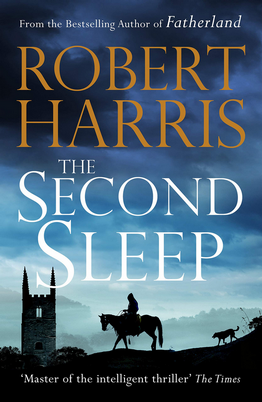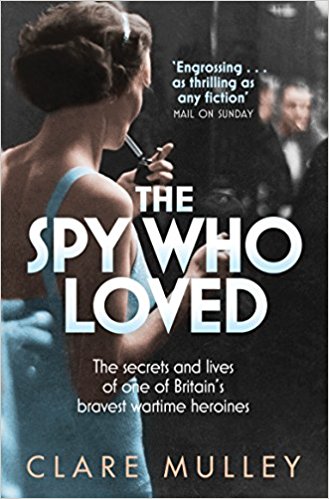Clare Mulley
Earlier this month, I reviewed the new book by Clare Mulley, The Women Who Flew For Hitler. This biography of two of Germany’s finest test pilots of World War Two was an intimate and honest look at two very complex women, Melitta von Stauffenberg and Hanna Reitch. Frankly, it is one of the best non-fiction books I’ve read this year. The compassion with which Clare looks at her subject’s lives and choices during a dark and conflicted time is testament to her skill both as researcher and writer. Thankfully, I’m not alone in raving about her book (Dan Snow’s interview with Clare over on History Hit is well worth a listen) and Clare kindly made a bit of time in her promotion whirl to answer a few of my questions.
I hope you enjoy the conversation.
Matt Bone – What was it that drew you to these women when you started looking into this subject and who came first in the process, Melitta or Hanna?
Clare Mulley – Having looked at a war heroine, the extraordinary Krystyna Skarbek, aka Christine Granville, Britain’s first female special agent in the Second World War, in my last book, The Spy Who Loved, I wanted to look at the other side of the war, and ask how Hitler managed to command the resources of his country for his appalling ends. Looking at women’s stories not only often opens up a rich seam of untold history, but also raises fascinating issues around choice and determination. Women were in no way expected, nor even really welcome, in the male dominated field of flight in 1930s Germany, so these women had to be highly motivated, as well as brilliant and courageous pilots. Hanna is fairly well-known, usually presented as brave and brilliant but politically and ideologically naive or ignorant. In fact she was a deeply committed, even fanatical, Nazi and this side of her story is under-told. Melitta’s story is almost entirely unknown in this country, and just as fascinating – though her motivations were very different. I could not have found better pair, each was a perfect foil to expose the other’s beliefs, decisions and dramatic actions.
MB – How did your attitude change, if it did at all, towards your subjects over the course of your research and writing?
Melitta von Stauffenberg
CM – This is not a book about ‘Good Nazis’ or ‘Bad Women’, cartoon characters with no nuance or contradictions. It is about two real women who knew and loathed one another, whose determination placed them at the heart of the Third Reich, but whose very different choices meant they ended their lives on opposite sides of history. Hanna at first appears more engaging than the remote and rather reserved Melitta. Hanna is ‘feisty’, Melitta disdainful, but there is much more to them than this. I try to keep my mind as open as possible during research – there is nothing to be gained from fast judgement. I also aim to let the characters reveal themselves through their words and actions during the book. To be clear, I am always very critical, but try not to prejudge.
MB – Did you make a choice in the course of the writing to focus on the human element of the tale, rather than going into detail of the work Melitta and Hanna were carrying out? I would have been happy with a chapter on the detail of Melitta’s dive and blind flying intercept techniques, but then I am a strange plane nut.
Hanna Reitch
CM – I write biography, so the human story is absolutely paramount. Having said which, I found the pioneering and often perilous technology here fascinating. Early helicopters flown inside buildings; rocket planes that have to glide back to earth; Stukas, the pressure of whose near-vertical dives was enough to cause a pilot to black out; manned versions of the V1 flying bomb or doodlebug… all flown, and sometimes developed, by these women often in the face of often open hostility. There will always be some people, such as yourself, who would have been pleased with more technical detail, and others who feel there is already enough. Had I have added more however, it would have been integrated throughout the book as it is currently structured, not an additional technical chapter!
MB – Of the may interviews and talks you’ve given so far to promote the book, what has been the question that you’ve not been asked so far but have wanted to chat about?
CM – I have been delighted not only that there has been so much interest in the book, but that the audiences at my talks have been such a diverse group of men and women of all ages. The discussions that have followed reflect this, from people’s own memories of watching V1s hit parts of London, to questions about women’s freedom of choices, clothes, presumed innocence and technical questions about the machines they flew. There’s a lot of interest in my research too, which was extraordinary. I not only found candid letters from Hanna to friends after the war that have never been previously published, but also Melitta’s handwritten wartime diaries. I was lucky enough to interview veterans and other witnesses from the war who knew both women as well. The question I’d like that I’ve not been asked? Anything that adds another perspective to this story, and of course the golden question – can we buy the film rights! Fingers crossed…
Movie Side Note from Matt: Should the movie rights get snapped up and the money people have the guts to cast properly, Johanna Wokalek, Gudrun in the very unnerving Der Baader Meinhof Komplex, would be a great Melitta. For Hanna, I think Alexandra Maria Lara would be brilliant. Alexandra was Traudl Junge in Downfall, so has bunker experience, and was brilliant in Control and Rush.
MB – Finally, the full title of your book is “The Women Who Flew For Hitler: A True Story of Soaring Ambition and Searing Rivalry”. Did you get to chose your colon-ised title and do you think we we’ve reached colon-ised title saturation yet?
CM – Two Birds With One Punctuation Mark: The Potential Impact of Colonised Titles In Western Literary Tradition With Particular Reference to Aviation Histories. Yes, you can get carried away with colonised subtitles, but they are useful and can be fun. In the few seconds a browsing potential reader might look at your book, the title and cover are all you have to reach them. All my book titles say pretty much what is in the tin, but the sub-titles can reflect the way the story is addressed, e.g. more technical detail, or human interest. There are a lot of bad alliterative puns you could make in a sub-title for this book, all to be avoided given this is serious history with an exciting personal narrative. All in, I think this subtitle is still a useful tool.
Thank you very much for your time Clare.
You can follow Clare on Twitter where she is @ClareMulley and via her website www.ClareMulley.com. The Women Who Flew For Hitler is out now in hardback from Pan Macmillan and The Spy Who Loved is available now in paperback, also from Pan Macmillan. Click the images below for links to Amazon to grab a copy.






Leave a Reply